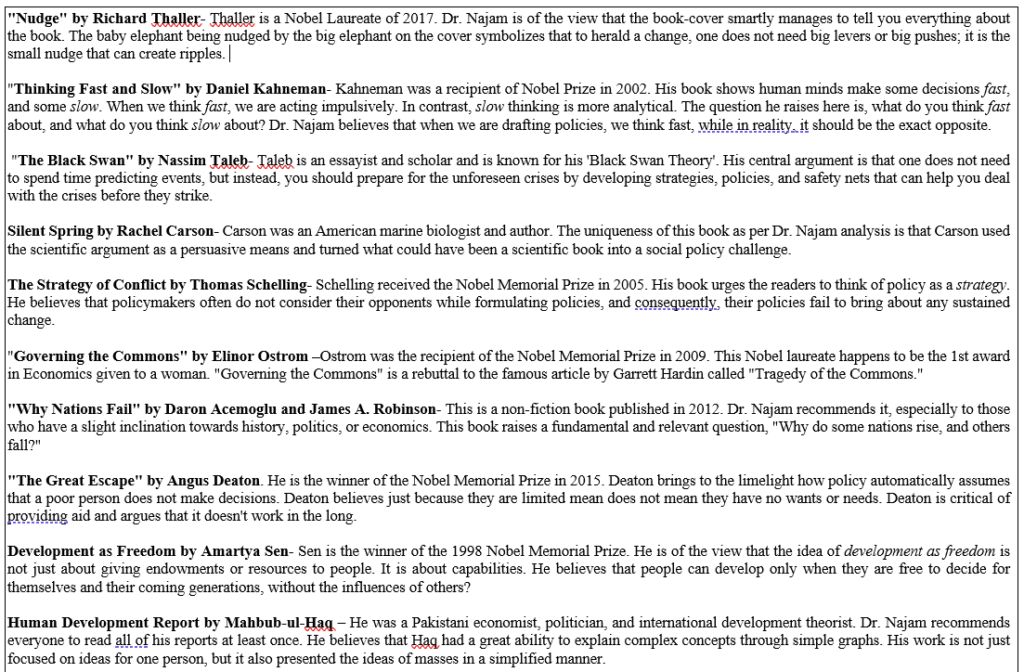By Ms. Ramsha Masood Ahmad and Ms. Madeeha Gohar Qureshi
Ideas are the only thing that matter when we set out to do practical things. ‘They are the root of creation’, as the French writer Ernest Dimnet rightly noted. Ideas contain a lot of importance because they have the power to change the world. They can help bring about innovation and can create miracles. They have huge value because they are behind running the whole world. All the development that takes place in all walks of life is influenced by ideas.
New ideas can replace existing ideas and improve the world. We all know that practice without thought is a crime. Ideas are vital and needed. They can guide our thought process. Jumping to start something without much thought can be a recipe for a disaster. Remember all the great philosophers and innovators like Socrates, Aristotle, Newton, Galileo, or Einstein? They all had within them ideas that ultimately changed the course of history and impacted all the future generation to come. The same can be said about the business world too. All the innovators and thinkers from Steve Jobs to Tim Berners-Lee, and from the teams behind Google or Uber, keep on revolutionizing the world we live in. An idea can most likely change the whole industry. Additionally, it can also be responsible for changing the way we live our lives.
Theory behind the Ideas
Ideas define how we think, process and make decisions. Ideas then lead to theory. Theories are framed to predict and understand phenomena. They are formed after investigation. Theory allows us to challenge the existing knowledge or extend it. We are able to explain new concepts through theory. It helps in bringing change or altering the current situation in a way that fits the best.
However, there is more that you can take from theory. Theories are not just well-written or well-articulated ideas. They are social constructions that are the starting and/or reference points of action. Theory enables us to take action. Yogi Berra perfectly summed up this argument, “In theory, there is no difference between theory and practice. In practice there is”. Therefore, to act, first we need theories.
To find theories that can help us in our lives and craft policies PIDE invited Dr. Adil Najam for his talk “Ideas Matter: A Reading List for Policy Wallahs”. He was of the opinion that to come up with new ideas and effective polices, you need to read. He specially urged policy makers to read.
Ideas and Reading
Reading helps us in developing and polishing our thoughts and ideas. It provides us with unlimited knowledge and lessons, that not only keep our minds running, but also guide us while coming up with ideas of our own.
To draft good policies, we can take aid from theories, found in books. We can use those theories to come up with policies. It is then the job of a policy maker, to decide why something is being done, or should be done. It is his/her responsibility to try to make sure that the right action is taken. A good policy is that which is executed effortlessly and is in the benefit of the masses. A good policy can further ease decision making tremendously too. A policy backed by proper theories is known for reducing the search area for possible alternatives and also decrease the need for recurrent in-depth analysis.
“Ideas Matter: A Reading List for Policy Wallahs” has provided us with a list of ten profound books that can help in policy building (Box 1). We can use those books as a guideline while drafting our policies. Moreover, we can also make sure that they are crafted in a way that is accessible for the masses to understand. The books are written by celebrated authors, who have each earned their places in their respective fields and most of them have been honored with the Nobel Honorary Prize.
Dr. Najam further added that academicians and policymakers need to be cognizant of the fact that when they are drafting policies they are doing it in a manner that is suitable for the majority. He criticized the academia for using certain jargons and challenging language that makes it hard for others to understand.
Who has the Advantage: Those Who Read or Those Who Don’t?
In our opinion, the essence of the whole argument is lost, when more people can’t take advantage from it. Policies are vital, as they are responsible for addressing pressing issues. We have to depend on our policies to run our organizations, networks and countries. Therefore, the language in which they are presented, are also significant. If people can’t understand a policy, then they cannot use it.
Resultantly, it is extremely crucial that the policies we follow have been passed through a thorough analytical and systematic stage. For a policy to be able to stand its ground it needs a full-fledged theory backing it. Likewise, for a policy to be practical, it needs a theory supporting it too. Hence, we need to develop a habit of reading so we can utilize theories.
Mark Twain’s quote “those who do not read have no advantage over those who can’t read”, sums up the whole argument. It’s just a simple chain in our opinion, you read and develop ideas, and then you use those to come up with policies.

The Nations survive who honor thoughts & ideas instead of a Nuclear Power
If the disaster of domestic economy could not be stopped:
• Will the thirsty and hungry have to fight the rich for water and food?
• Will economies collapse? Whether economy is going to be collapsed?
• Will necessities make possible without human intervention?
• Whether joint efforts & appropriate interventions will reform the situation?
Too many ideas and thoughts are busted in the buffer. Which one POWER rescue in this country?